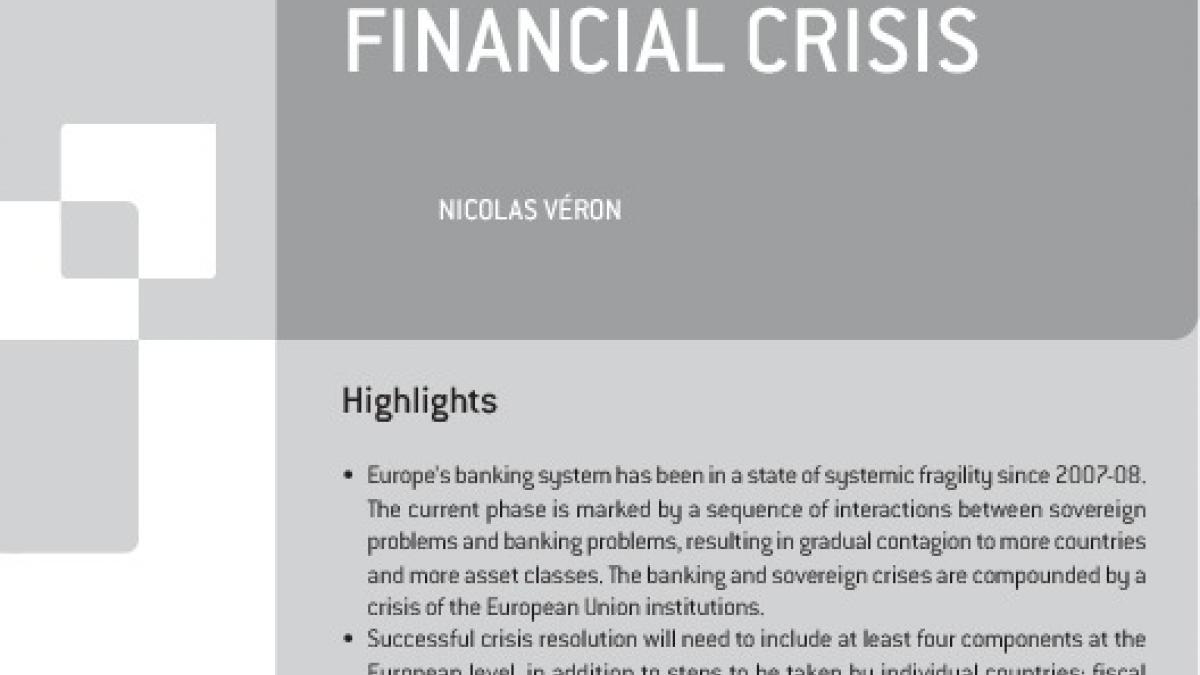Testimony on the European debt and financial crisis

This Policy Contribution reproduces the written statement prepared by the author for the hearing "The European debt and financial crisis: origins, options and implications for the US and global economy" presented at the Subcommittee on Security and International Trade and Finance of the US Senate Committee on Banking, Housing,and Urban Affairs, on 22 September 2011.
Europe’s banking system has been in a state of systemic fragility since 2007-08. The current phase is marked by a sequence of interactions between sovereign problems and banking problems, resulting in gradual contagion to more countriesand more asset classes. The banking and sovereign crises are compounded by a crisis of the European Union institutions.
Successful crisis resolution will need to include at least four components at the European level, in addition to steps to be taken by individual countries: fiscal federalism; banking federalism; a profound overhaul of EU/euro-area institutions; and short-term arrangements that chart a path towards the completion of the previous three points.
These requirements for crisis resolution cannot be met unless political conditions change sharply in their favour, which leaves the United States and the global economyexposed to the risk of financial contagion. However, only the Europeans themselves can solve their current predicament.



